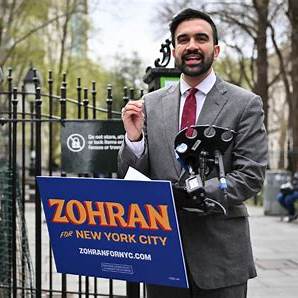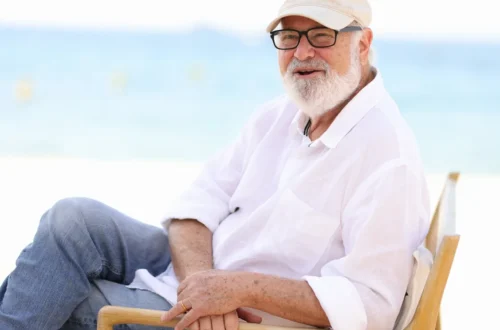In a surprising turn, New York City Mayor Eric Adams has dropped out of the 2025 mayoral race, dramatically altering the political landscape and elevating Zohran Mamdani from insurgent candidate to presumptive front-runner. The move comes just weeks before the election and has sparked fierce speculation about what motivated Adams’ exit—and whether he might have struck a deal for a position in a Trump administration as part of the bargain.
Adams, who had attempted to run for re-election as an independent after exiting the Democratic primary earlier this year, released a video statement saying his campaign had become untenable under intense scrutiny, fundraising shortfalls, and institutional opposition. Though he insisted his exit was about the difficulty of continuing under pressure, political watchers were quick to note the timing: it clears Johnson’s path and consolidates votes behind Mamdani, whose polling had been steadily climbing.
Mamdani, a state assemblyman known for his democratic socialist platform, had already stunned many by winning the Democratic primary over Andrew Cuomo. His agenda—rent freezes, free public transit, universal child care, and a more progressive tax structure—had drawn both energized support and fierce criticism. With Adams out, Mamdani now faces Cuomo and Republican Curtis Sliwa as the principal contenders—but the optics are stark: he looks like a runaway favorite.
Before Adams’ withdrawal, polls showed him lagging well behind Mamdani and Cuomo. He struggled with declining approval, persistent controversies, and questions over his political future after a federal corruption indictment earlier in his term was dismissed. His administration’s internal scandals, combined with a perception of faltering leadership, further eroded his appeal. Still, for a sitting mayor to abandon a re-election bid so late in the game is rare and has fueled speculation that something deeper is at play.
Whispers have swirled that Adams may have been offered an ambassadorship or other federal appointment in exchange for stepping aside. Some reports claim discussions occurred between Adams and Trump-aligned operatives about roles in the administration—perhaps housing, foreign service, or another high-profile post. While Adams denied any formal agreement in public remarks, he did not strongly repudiate the rumors. He spoke of a continued commitment to public service and left open the possibility of national roles beyond city hall.
Critics say if such a deal exists, it would amount to a political coup—effectively purchasing Adams’ exit in exchange for a role that might help preserve his stature and protect his legacy. For Mamdani’s opponents, it raises troubling questions about backroom deals and power consolidation. For supporters, it underscores how threatened the establishment feels about his candidacy.
In interviews and campaign stops in recent days, Mamdani largely maintained his message: Adams’ withdrawal doesn’t change the fundamental choice before voters. He argued it clarifies the stakes between a future shaped by entrenched power and a city that invests in working people. He also signaled that he expected more pressure, more smears, and perhaps more intervention from national powers invested in his defeat.
Andrew Cuomo, now running as an independent after his primary loss, tried to seize the moment, positioning himself as the moderate alternative to Mamdani’s leftward tilt. He has intensified messaging around law and order and stability, hoping to attract centrist New Yorkers wary of radical shifts. But his past controversies—and the fact that Mamdani trounced him in the Democratic primary—give him an uphill fight.
Sliwa, the Republican candidate, has remained peripheral in the race. Without Adams in the contest, he risks being squeezed as an afterthought, unless he can revive momentum or appeal to disenchanted voters seeking something outside the progressive-moderate divide.
Political analysts warn that the Adams exit also tests how resilient Mamdani’s support really is. Will Adams’ base shift to Mamdani? Do moderate Democrats rally to Cuomo? Can a coalition coalesce in time to counter the momentum Mamdani now holds? And perhaps most critically, will Adams’ departure taint the race with accusations of cynicism and deal‐making?
The next weeks will be furious. Campaigns will scramble to reallocate resources. Endorsements formerly aligned with Adams may now shift. Donors calculated their investments under the assumption of a three-way contest; now they must reassess whether to back Mamdani or throw weight behind Cuomo. Media scrutiny of potential Adams-Trump discussions promises to intensify.
New York voters now confront a sharper choice: the experiment represented by Mamdani’s sweeping platform or a return to experienced hands under Cuomo. But the narrative tilt has changed. What was once a long shot is now the race to beat. What will follow is whether Mamdani can translate his primary shock into general election dominance—and whether Adams’ departure will be remembered as a strategic retreat—or a political handoff.
Whatever else history will record, the 2025 mayoral contest now pivots on Zoran Mamdani’s shoulders. His chances have never looked stronger—and many in New York are watching to see whether the city’s next chapter begins with a progressive reboot or a reassertion of the old order.




